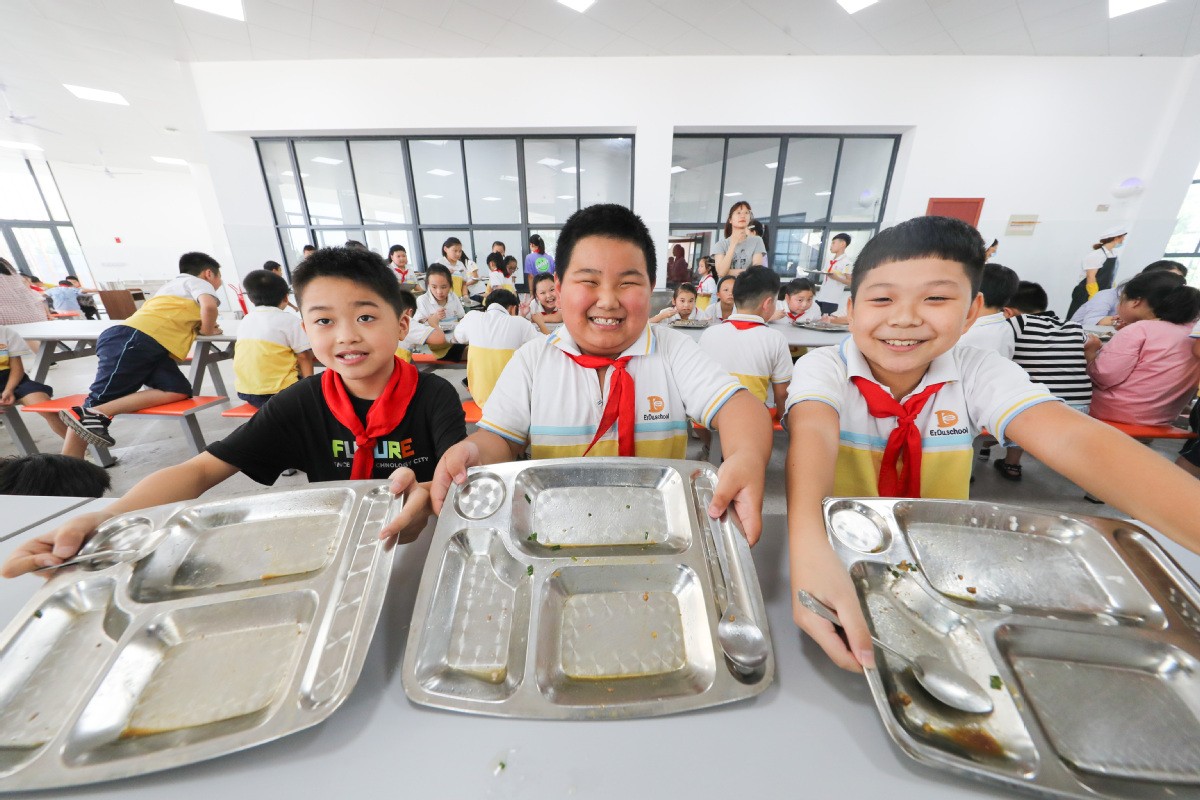Bugs raised to dine on food waste


Innovative solutions found for worldwide problem
Any mention of cockroach-es in the same breath as food will provoke a reaction of disgust among most people, but not from Li Yanrong.
The 53-year-old entrepreneur from Shandong province raises cockroaches to consume kitchen waste, with his business earning millions of yuan annually.
At Li's company, which occupies a 1,800-square-meter plot 2 kilometers from Shawan, a village in the outskirts of Jinan, the provincial capital, some 1 billion cockroaches chew through at least 50 metric tons of food waste a day.
"We spent six years researching the use of cockroaches, finding they can feed on kitchen waste and create no pollutants. Cockroaches should not just be seen as pests, they can be beneficial to society," said Li, general manager of Qiaobin Agricultural Technology.
At one of the company's workshops, where simple equipment is used to process kitchen waste, a foul smell hangs in the air. Here, food waste is crushed, shredded and ground up before being transferred to a feeding system through a spiral tunnel.
"The cockroaches live for up to 11 months on average and their bodies, in turn, are eaten by chickens. They are very helpful, aren't they?" Li said.
Insects are being used worldwide to solve major problems, he added. "The most successful example of this is in Australia, where dung beetles are dealing with cow dung. This prompted us to think of using cockroaches to tackle kitchen waste.
"We are the first company in the world to do so and we have applied to patent the project. Using cockroaches to deal with kitchen waste is good for our country, as social problems created by such waste will be eradicated."
- Rapid rescue efforts save lives after Xizang quake
- Chinese airlines ramp up operations as travel rush gets underway
- Two cruise ships bring over 9,000 domestic, foreign tourists to Shanghai
- Shanghai legislators, political advisors suggest ways to attract more foreign travelers
- China aims for more ambitious space missions in 2025
- Beijing to add 20,000 primary and secondary school seats in 2025





































